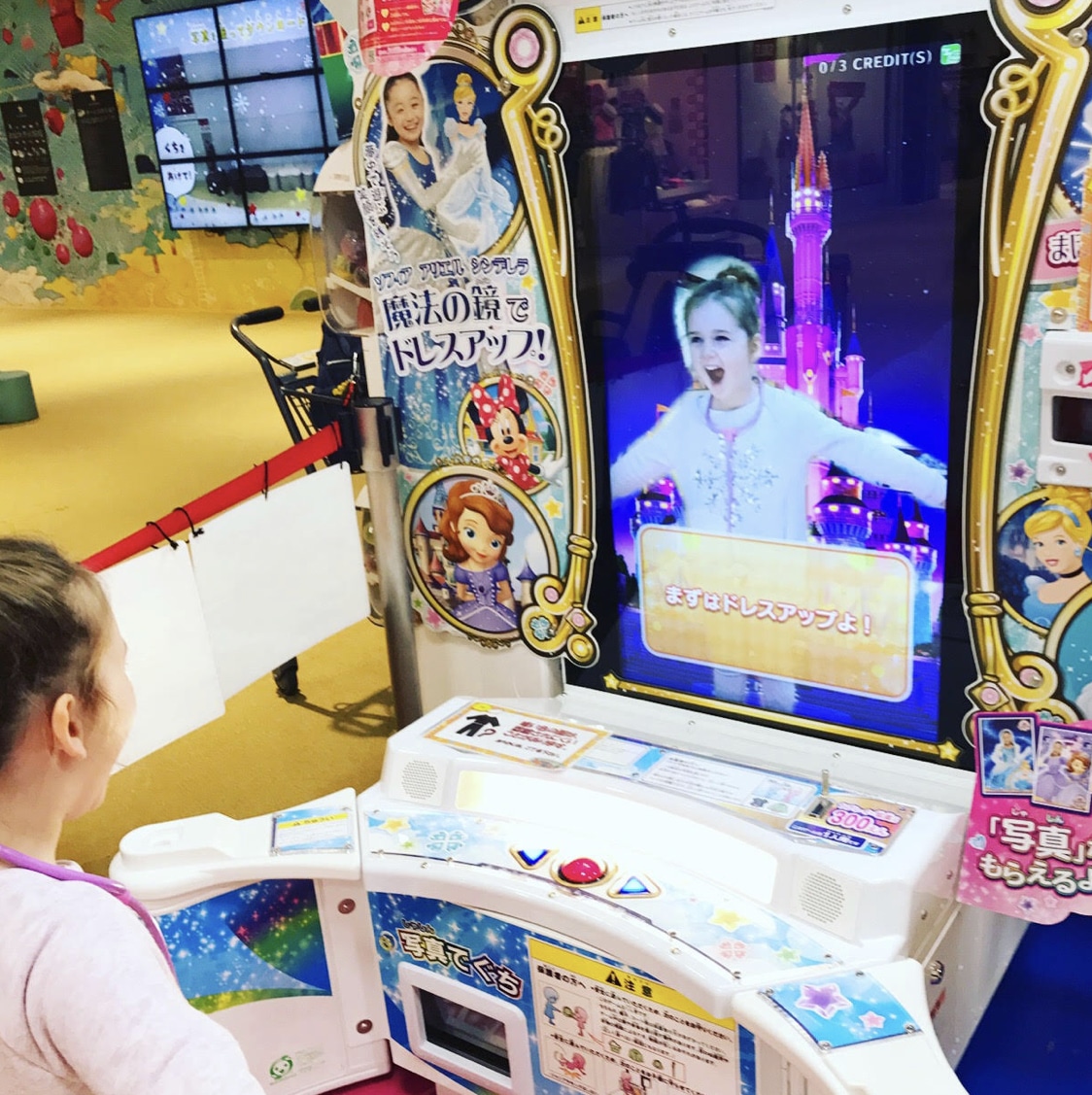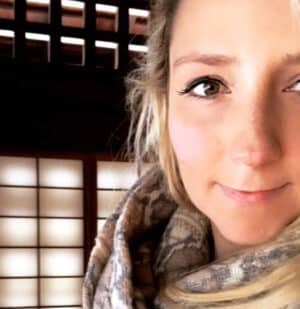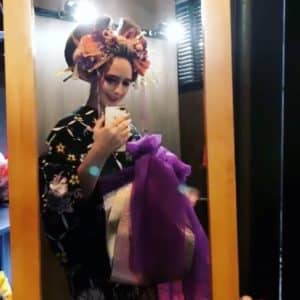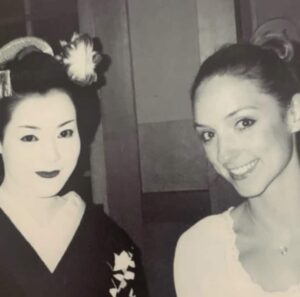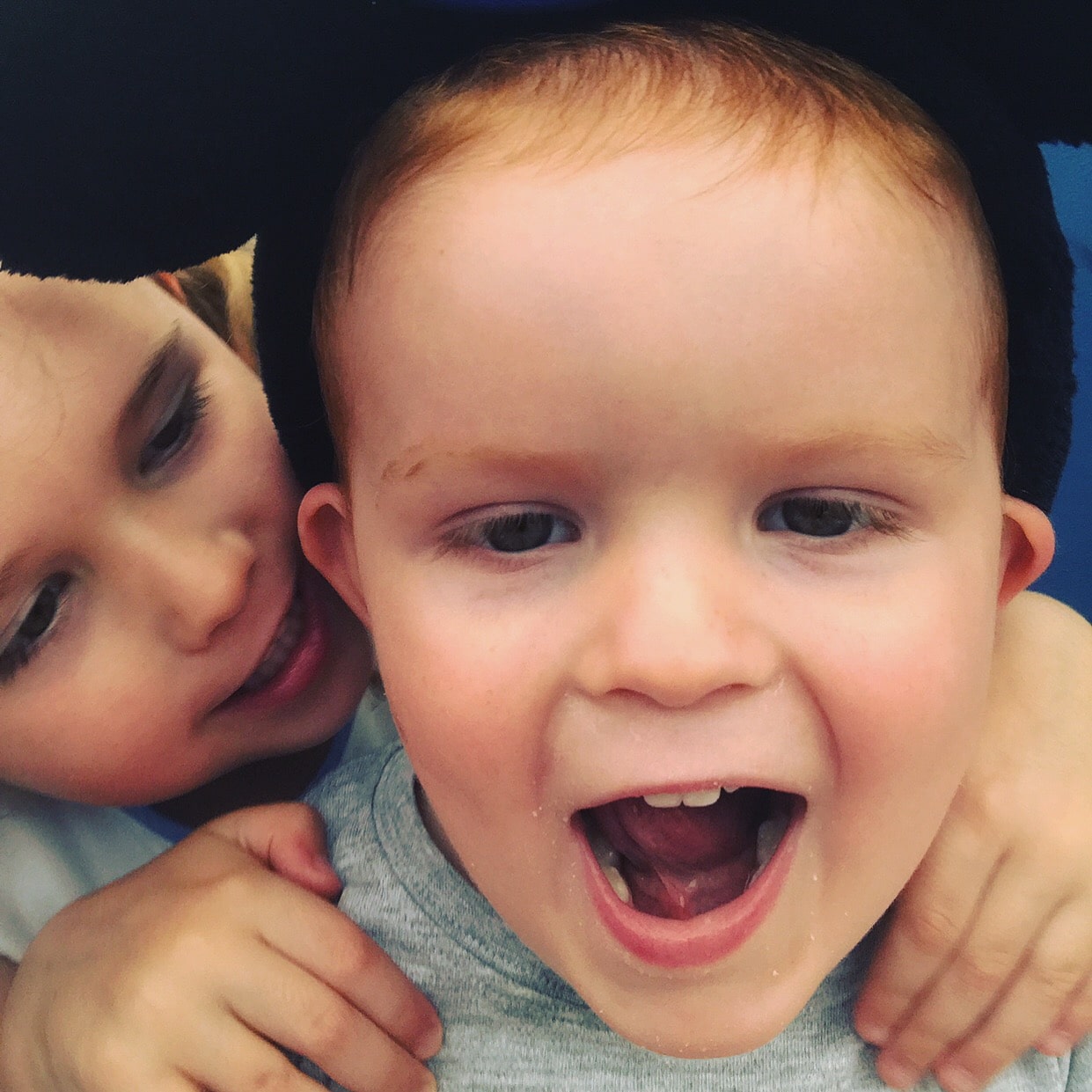
“Mum, I think I broke my leg! ” and “Mum, I want a banana !” same decibel level required, apparently.
But, actually, it took me quite a bit longer to find my groove. But we sure did get there. I spoke all about those mini-hurdles when adjusting to life in Tokyo with kids.
And I also wrote about the things I worried about before moving to Tokyo with kids.

The restaurant issue was resolved by choosing kid friendly restaurants such as those with high chairs in Tokyo and always turning up at a restaurant with stickers or iPad or coloring or play doh etc.(this really helps with the time between entering the restaurant and the food coming to the table) and, when kids are old enough talking to them about expectations (“let’s run around now at the park now because when we get into the restaurant we will need to sit in our seats while we eat.)
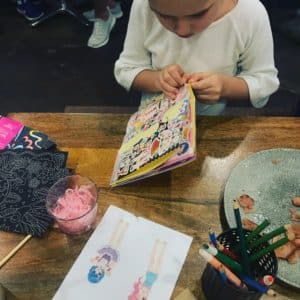
I also recommend eating outside of peak hour times if you are feeling nervous or if you just know your kids can’t sit quietly for long. Not only does eating dinner at 5pm or lunch at 11am mean that you’re likely to get in and out more quickly but there will also just be less people in the restaurant to worry about. I mention this in my Tokyo Disneyland post but Japanese people are quiet set on traditional meal times so the moment you step outside eating between 12-1:30pm or 7-9pm you are already missing out of the rush, long lines or long waits for food.
Other ideas if your kids just really aren’t “restaurant ready” is to take turns as parents to eat at smaller restaurants while kids play. Then you’re not having to worry but also not missing out on good quality local food. Another option is to buy food at a depachika (most major department stores have a mega deli, food hall down in their basement with every kind of food you can imagine) and you can all buy what ever you like for an affordable price and either take it back to your hotel or make a picnic of it in the park (I suggest doing this in Yoyogi Park in my Harajuku with Kids blog post.) This is also a great option if your kids are picky with food or have a lot of anxiety over new foods.
For very casual restaurants that don’t require kids to be very quiet, I recommend trying out western style diner restaurants (all over Japan) called Gusto and Royal Host.
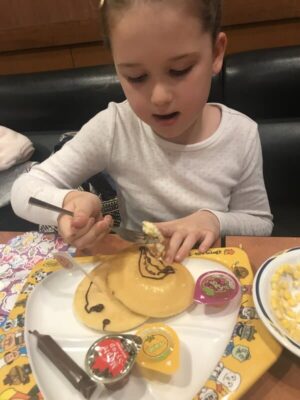
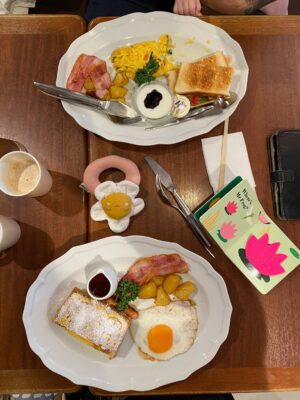
I talk more about general Japan taxi etiquette and tips here.
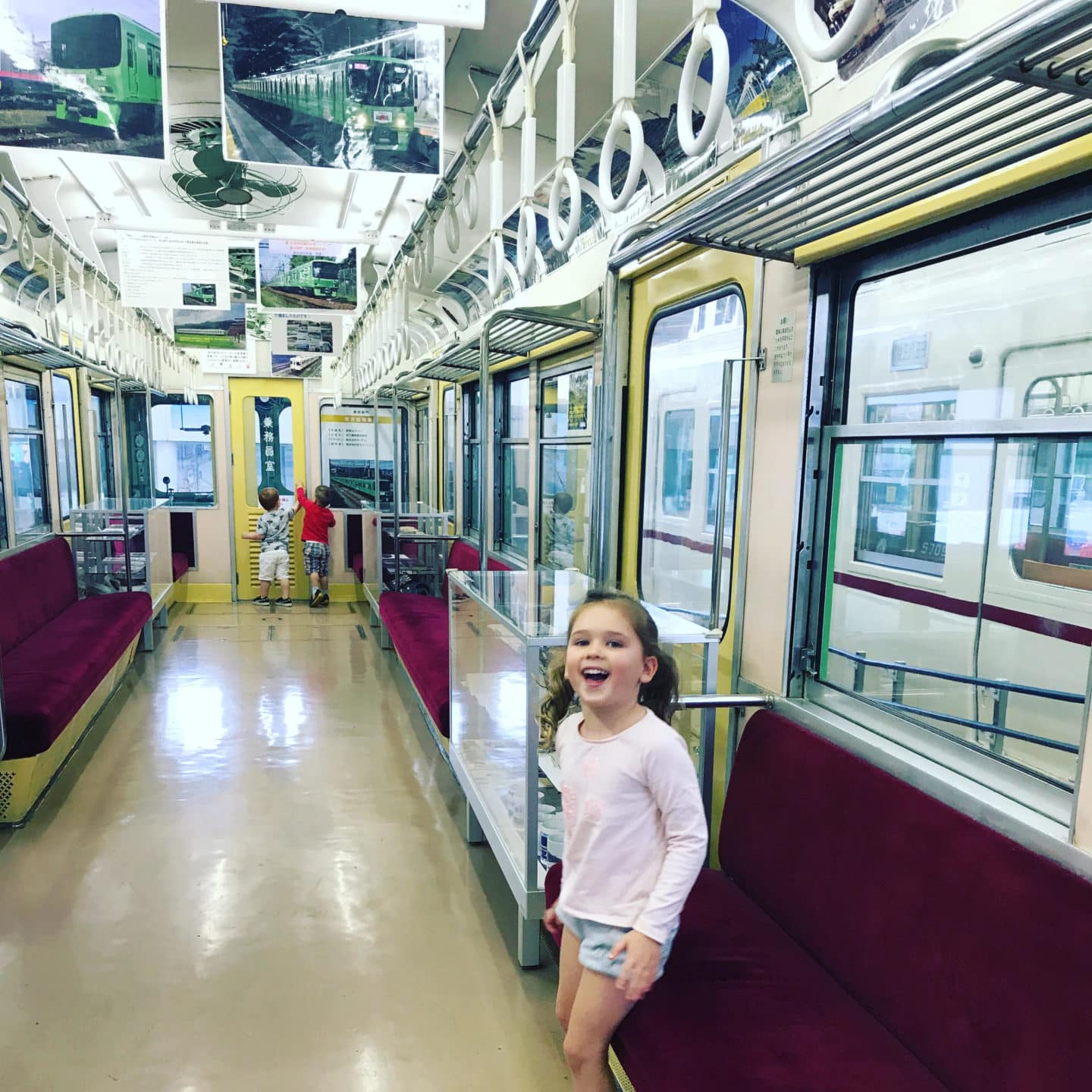
Someone once said to me “I’m so nervous about the no talking on the train rule in Japan. I’m so worried how I will do that with my small kids?”
So please please allow me to reassure you – it’s not a “real rule.” It’s just about being courteous to other passengers.
No one is coming to fine you or arrest you. It’s also extremely unlikely that anyone will say anything to you about it, even.
Just prep kids before getting on the train “In Japan is a bit like being in a library and we need to make sure we speak quietly to one another.”
And if your child still doesn’t manage this ? Then, as long as you are to be seen reminding them and trying your best to keep them quiet then you are being a perfectly polite and courteous passenger. No need to stress or apologize to anyone.
If you’re really feeling anxious about it – you could always have a packet of m&ms in your pocket for train rides too? (Doesn’t need to come to that – but if it makes you feel better to have that “tool” to work with…. then, why not?)
As I say in my flying with kids tips blog post – if you come across someone who is being an a-hole to a child – they are also a-holes to everyone else in their lives too so I wouldn’t worry about it.
Also, I’ve met many more horrible people outside of Japan than I have in Japan.Be preparedI talk about it here in my post where I spell out some ways to easily ruin a day out with kids in Japan. I talk about what to take with you too.
Also, I have this post on what I carry in my nappy / diaper bag in Japan.Headphones for ipads and/or phones
If you’ll be using ipads or phones for distractions on bullet train rides etc you will need headphones as train carriages (especially on bullet trains) are meant to be as quiet as possible (the train conductors will ask you to turn it off it is disturbing others. Noise cancelling headphones can also be a great options for kids who experience sensory issues or find too many noises to be distressing.
I do feel like I see PLENTY of very wild Japanese children too.
Lots of parents (particularly Mums) don’ t want to lose their cool in public either (that would be loss of face and cause extra embarrassment) so you’ll more often than not see a child being spoken to at their level once everyone has gotten off the train or left the restaurant.
Then of course, there are the other parents, just like the rest of us, who are frazzled and want the world to swallow them up when their child is a monster for a lovely loud “session.”
If you want to be able to say kind things to another Mum or Dad having a rough time but need a Japanese cheat sheet for that?
If people ( of any nationality) are arseholes…. then they are arseholes on a daily basis to everyone anyway so ignore. Not your problem.
Sometimes, when my double pram is loudly rolling through Shibuya and one kid is singing and the other is demanding that they are dying of starvation right at that very moment and the crowds part like we are some wild, screeching parade of foreigners I find it helps me to not go mental by imagining how it all looks from the outside. Or, even, already imagining myself telling a friend about this very moment later – while laughing, not crying.
Any kind person, of any country of the world, who has had children – knows how you’re feeling in this very moment.
So trying is the operative word. Just make sure that you’re not staring out the window while your kid kicks that business man on the bus and make sure you move the glassware away from them when you first sit at the table.
That effort is valued highly.
And, for me, if falls into the category of just being a little bit more culturally aware than the next person.
Think of it this way … you’ve kind of hand-balled the situation to them a little bit and they get to decide if they are going to be kind or unkind about it all. Right?
Mada go sai desu (He/she is only 5 years old)
Make sure you factor in places where kids can be noisy through the day
Then you won’t be that person saying shush all day long either.
Here are my favourite Tokyo retro playgrounds.
Here are my favourite Tokyo playcentres.
Also, in my suggested area guides I talk about playcentres, parks and places for kids to let off steam between other fun things to do.
Cheesy, right?
I also talk a lot about it in my Japanese conversational shortcuts here but remember that friendly body language and smiles always show that you’re a kind and thoughtful person even more than words.
Yes, I feel welcome and safe with my children in Japan.
